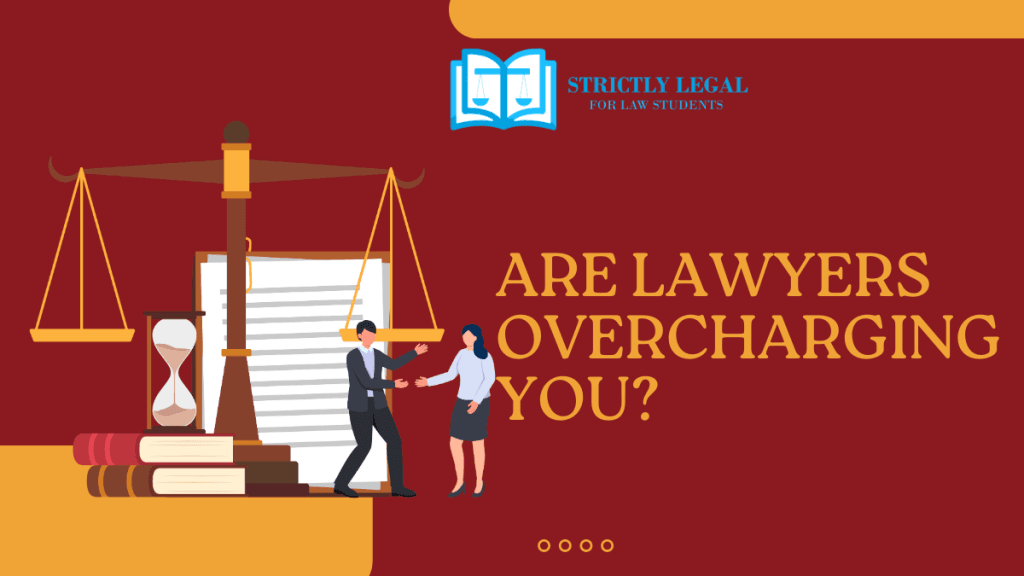In India, the legal profession plays a crucial role in upholding justice, resolving disputes, and safeguarding individual rights. However, when it comes to lawyer fees, the issue is not always as clear-cut. Legal fees in India can vary greatly, and in some cases, clients may feel overcharged or uncertain about the fairness of the costs they incur for legal services. This is where the ethics of lawyer fees come into play.
The legal profession, governed by strict codes of ethics, aims to ensure that lawyers charge reasonable and justifiable fees, while also providing quality legal services. But with the rising cost of legal representation and varying fee structures, many individuals and businesses are left questioning whether they are being charged fairly.
Table of Contents
Understanding Lawyer Fees in India
The concept of legal fees in India is broad and flexible, as there is no standard fee schedule that applies across the board. Lawyer fees in India depend on various factors, including:
Hourly Fees:
Some lawyers charge clients on an hourly basis for legal services, especially for complex or ongoing cases. This means that the client is billed for every hour spent working on the case, which can include research, consultation, and drafting documents.
Flat Fees:
For certain services like drafting contracts, filing simple petitions, or handling routine legal matters, lawyers may charge a flat fee. This fee is agreed upon upfront and does not vary, regardless of the time spent on the case.
Contingency Fees:
A contingency fee is common in civil cases, such as personal injury or family disputes, where the lawyer’s payment is contingent on winning the case. If the case is successful, the lawyer typically receives a percentage of the compensation or settlement. This percentage varies but generally ranges between 25% to 40%.
Retainer Fees:
A retainer fee is a fixed amount paid to the lawyer in advance to secure their services. Retainers are common in situations where the client requires ongoing legal counsel or services. The retainer is often deducted against the fees as the lawyer works on the case.
Fees charged by lawyers
The legal profession is regarded as a noble one in which attorneys put their clients’ needs ahead of their own, and ethics triumph over attorneys’ self-interest.
An typical Indian litigant must pay an average of Rs. 465 each day for court procedures, according to a DAKSH analysis. Many people do not take use of the free legal services provided by the National Legal Services Authority Act of 1987. According to the research, only 2.36% of all litigants were able to pick lawyers appointed by the court, despite the fact that a sizable portion of them were from lower-income categories. It is difficult for even middle-class and upper-class people to pay large costs to attorneys before their case is successful. Furthermore, there is very little regulation in India regarding the fees that attorneys charge their customers for legal services. A lawyer should only charge up to Rs. 8,000 every hearing, which is not even half of what attorneys charge, according to Supreme Court regulations from 2013. For an appearance before the Supreme Court, leading attorneys in the nation charge between Rs. 10 and Rs. 20 lakh.
Since attorneys base their fees on their customers’ ability to pay, the cost of legal services varies from client to client. For High Court proceedings, attorneys typically charge between Rs. 3 and Rs. 6 lakh every hearing; if the attorney has go to another High Court, fees may reach Rs. 25 lakh. Trial Court cases cost approximately Rs. 10 lakh, and there have been examples when attorneys have demanded a reasonable portion of the money the client received in an accident claim as payment for their services.
The Supreme Court recognized the problem of high fees charged by attorneys in the Sunitha v. State of Telangana case, ruling that an advocate’s fee based on a percentage of the litigation’s outcome was unlawful and should not be allowed. In order to prevent the impoverished segments of our society from being excluded from the legal system, the Supreme Court sought legislation that would prohibit the growing commercialization of the legal profession and set a cap on legal costs.
Feasible Solutions
Attorneys should disclose their professional fees to their customers in advance. Customers will be able to compare prices and determine which physician or attorney will best suit their needs by knowing the charges ahead of time. Additionally, attorneys should advise their clients in advance of the fees they will charge. With certain restrictions, the contingency fee may be used in the legal profession as, in contrast to paying lawyers in advance, this idea may help Indian plaintiffs. The sum that the attorney will charge upon a successful settlement of the case is known as the contingency fee. Contingency fees are frequently stated as shares or percentages. In most cases, the attorneys charge a fee of 5 to 10 percent. For plaintiffs who cannot afford the high costs of financing the drawn-out court proceedings, this may be a financially sensible option. Lawyers will be willing to put in their best effort if they take on a case because this principle also permits them to get paid only if they win. Payment to the attorney is contingent only on the outcome of the case. Even practicing on a contingency basis is said to enhance competency.
Conclusion
In our society, lawyers/ attorneys or advocates are highly esteemed and respected. They are expected to carry out their responsibilities and provide us with their finest services, but charging outrageous prices for these services will be an agony for the average citizen. It’s also assumed that attorneys won’t charge lower fees than what they are providing, but there should be a cap on the fees they charge and, in addition, they should disclose their fees upfront so that the general public is aware of them before hiring them. The government should take the required steps to monitor the fees that these experts charge, and a complaint system should be established to gather data regarding such incidents. Tough measures ought to be implemented against those who abuse their profession by demanding extravagant fees to clients.

Law student.
Turning legal insights into engaging narratives.





